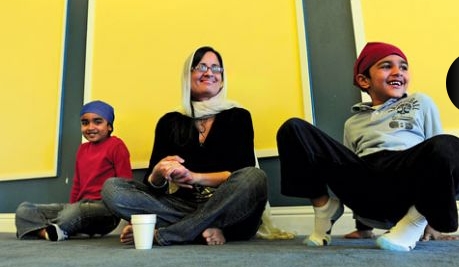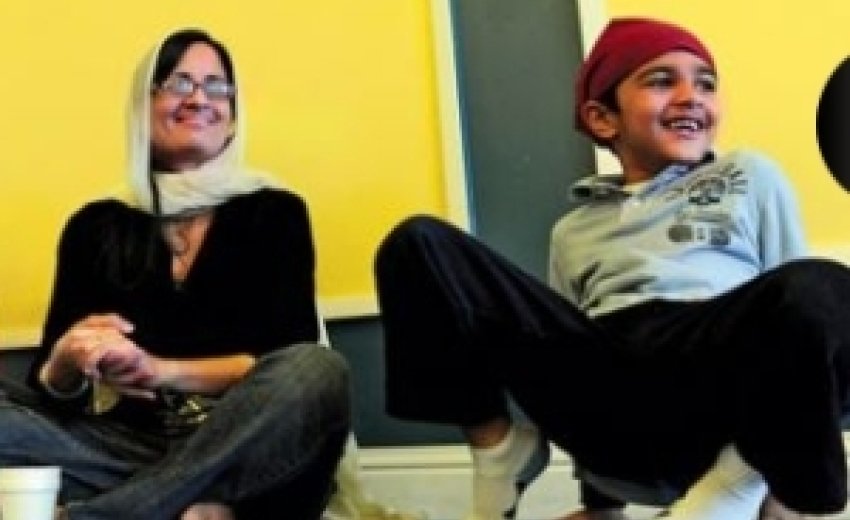 |
| Amarjit Suprai of Yuba City and her sons – Karam, 6, left, and Sammy, 5 – visit the Tierra Buena Sikh Temple in Yuba City on Sunday. Yuba-Sutter Sikhs enjoy an acceptance unknown by brethren still struggling with backlash from the 9/11 attacks. Chris Kaufman/Appeal-Democrat |
Yuba-Sutter Sikhs enjoy an acceptance and understanding unknown by brethren still struggling with backlash from the 9/11 attacks.
Hundreds of Bay Area Sikhs met with U.S. Attorney Melinda Haag in El Sobrante last week and complained about people confusing Sikhs, who often wear turbans and grow beards, with the Muslims whom the prejudiced are targeting.
"I want to make sure the Sikh-American community and all the other communities in the district that are the victims of hate crimes, they know who to call," Haag said in an interview with the Appeal-Democrat.
Local Sikhs, however, didn't catch the same heat, said Tej Maan, a Yuba City City Council member. Unlike other places, Sikhs have made up a large part of Yuba-Sutter's relatively small population for decades.
Nine hate crimes were committed in Yuba-Sutter over the last three years for which data is available from the Federal Bureau of Investigation's Uniform Crime Reports. Religion was the motive in two of them, although the report doesn't specify which religion.
Sikhs are not an abstract concept in Yuba-Sutter, Maan said. They are neighbors, co-workers, bosses, employees and classmates.
"Everybody knows who the Sikh people are," he continued. "They know who these people with turbans and beards are. They're the Sikhs. They're neighbors."
Sikhism is well-entrenched here, echoed Barinder Suprai, 35, of Yuba City.
That buffer doesn't extend far. Two Sikhs were shot and killed in Elk Grove last spring. In November 2010, two men beat a Sikh cab driver in Sacramento, breaking bones in his face and spine.
"It still happens," said Amarjit Suprai, Barinder's wife. "People hate us because we are different."
Her husband felt the brunt of prejudice while traveling through airports and passing through security checkpoints on the East Coast.
"They say it's random, but it's not really random," he said of inspections. "Your skin color does play a role in it."
The federal government is not just interested in hate crimes, Haag said. Crooks prey on specific groups they see as vulnerable. Sikhs in the Bay Area, for example, complained they were being targeted by identity thieves, something Haag's office is looking into.
"If people in my district are the victims of crimes, I want to know about it," Haag said in the Appeal interview. "I want people in the district to know they can report it and know who to report it to."
To reach the U.S. Attorney's Office, call 415-436-7200.
